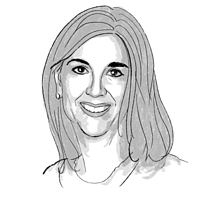Why this Tennessee teacher sees value in ‘Maus’
Loading...
What is lost when a school board decides to exclude a book from the curriculum?
The decision of the McMinn County School Board in Tennessee to remove the graphic novel “Maus” from its eighth grade language arts curriculum roused a storm of criticism. It also galvanized a group of people determined to make Art Spiegelman’s award-winning book available to young people who want to read it – for free.
The groundbreaking graphic novel tells the true story of Mr. Spiegelman’s father’s struggle to survive the Holocaust, and the effects on his family later. It remains the only graphic novel to win the Pulitzer Prize.
In Tennessee, people are coming together to oppose the ban and get the book into more hands. In McMinn County, St. Paul's Episcopal Church hosted a “Maus” book discussion on Zoom. Fifteen miles away in Knoxville, comic store owner Richard Davis launched a GoFundMe campaign to buy copies of “Maus” and give them to students. Heather Green, who teaches high school English in Knoxville, is supplying a parents’ reading guide to accompany the free books.
Ms. Green, who taught “Maus” for six years, says in a phone interview that what would be lost to students under the ban is an “accessible Holocaust story,” and one that goes further than Elie Wiesel’s “Night” or Anne Frank’s diary, because it shows how trauma persists into the present day. “What I value most about ‘Maus’ is ... it shows that people don’t just walk out of a concentration camp and go back to living their lives,” she says.
Ms. Green and other educators argue that students are capable of handling more mature books than their parents realize, not just about the Holocaust but also those that deal with race, sexuality, and substance abuse. Many students in her school are already experiencing adversity in their lives, from domestic violence to food scarcity. “They need the safe space of a classroom to process difficult topics,” she says.
But in Tennessee schools, difficult topics are now off limits. Last May, the governor signed a law that gives the education commissioner power to withhold funds from schools that teach concepts that the Republican-led legislature say are part of critical race theory, or that cause students “discomfort, guilt, anguish.” Ms. Green says the new law has had a chilling effect on teachers and schools. “We have been told to teach the new curriculum with 100% fidelity to avoid any parent complaints or lawsuits,” she says.
She is convinced that teachers can help parents better understand the value of difficult books. “When we partner with parents and help them also become an educator for their child, the child has an exponential potential to grow as a reader – and as a person.”








